Hamed Shahbazi
Entity-aware ELMo: Learning Contextual Entity Representation for Entity Disambiguation
Aug 22, 2019

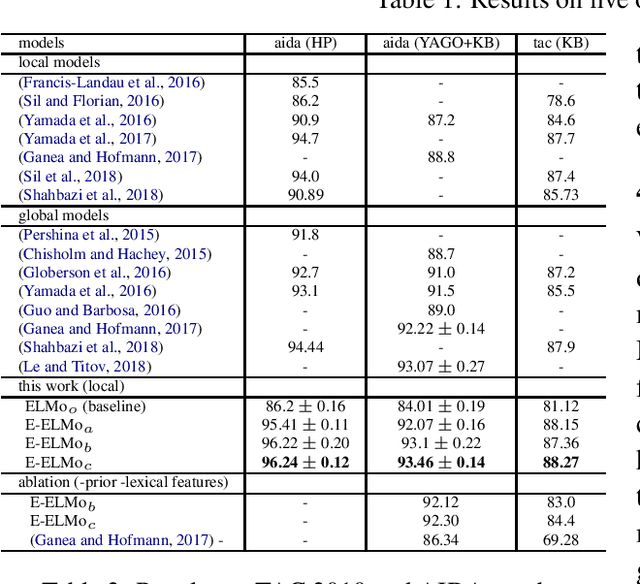
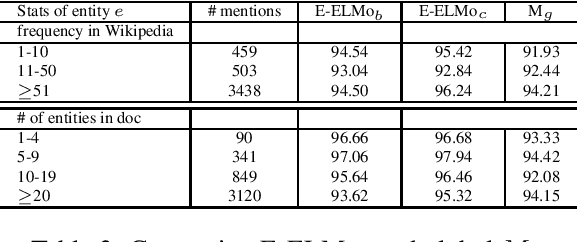
Abstract:We present a new local entity disambiguation system. The key to our system is a novel approach for learning entity representations. In our approach we learn an entity aware extension of Embedding for Language Model (ELMo) which we call Entity-ELMo (E-ELMo). Given a paragraph containing one or more named entity mentions, each mention is first defined as a function of the entire paragraph (including other mentions), then they predict the referent entities. Utilizing E-ELMo for local entity disambiguation, we outperform all of the state-of-the-art local and global models on the popular benchmarks by improving about 0.5\% on micro average accuracy for AIDA test-b with Yago candidate set. The evaluation setup of the training data and candidate set are the same as our baselines for fair comparison.
Saliency Learning: Teaching the Model Where to Pay Attention
Apr 04, 2019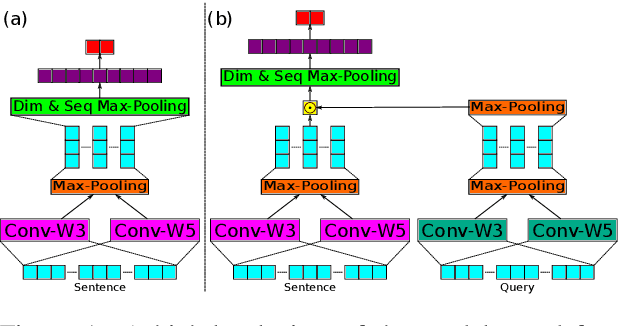
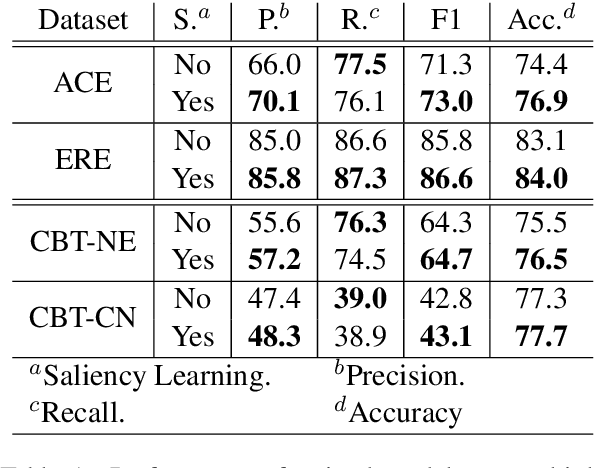
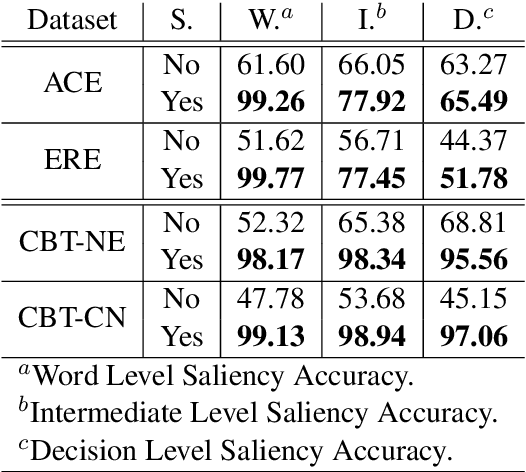
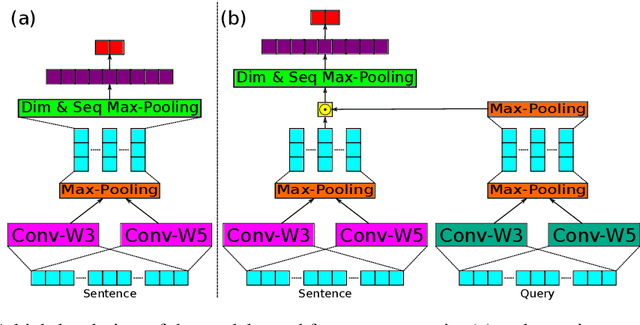
Abstract:Deep learning has emerged as a compelling solution to many NLP tasks with remarkable performances. However, due to their opacity, such models are hard to interpret and trust. Recent work on explaining deep models has introduced approaches to provide insights toward the model's behaviour and predictions, which are helpful for assessing the reliability of the model's predictions. However, such methods do not improve the model's reliability. In this paper, we aim to teach the model to make the right prediction for the right reason by providing explanation training and ensuring the alignment of the model's explanation with the ground truth explanation. Our experimental results on multiple tasks and datasets demonstrate the effectiveness of the proposed method, which produces more reliable predictions while delivering better results compared to traditionally trained models.
Joint Neural Entity Disambiguation with Output Space Search
Jun 19, 2018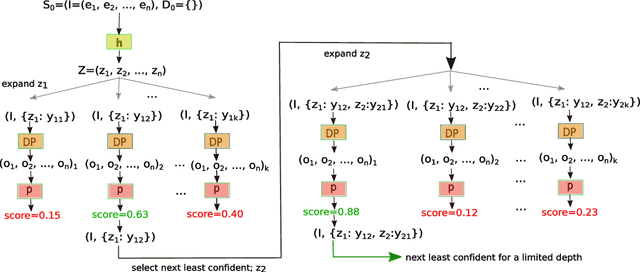
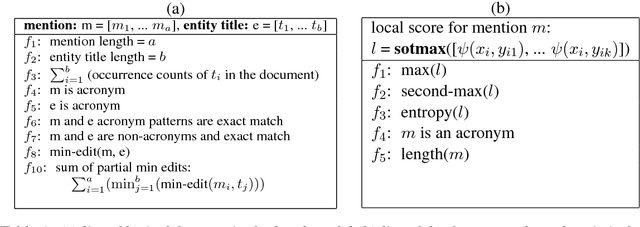
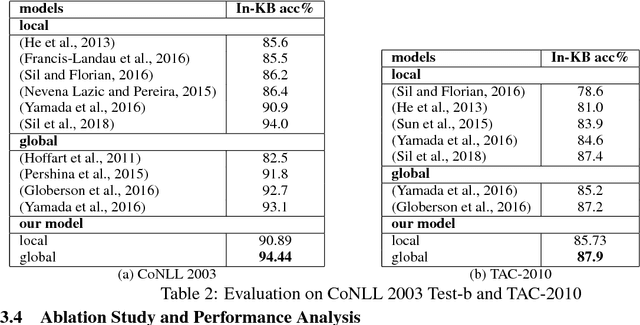
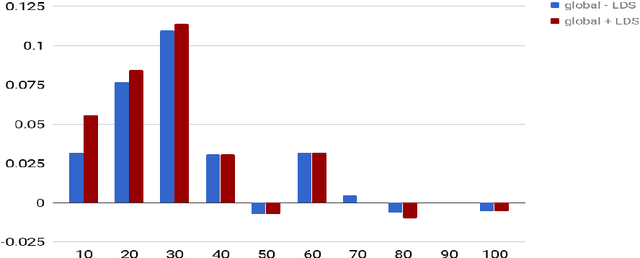
Abstract:In this paper, we present a novel model for entity disambiguation that combines both local contextual information and global evidences through Limited Discrepancy Search (LDS). Given an input document, we start from a complete solution constructed by a local model and conduct a search in the space of possible corrections to improve the local solution from a global view point. Our search utilizes a heuristic function to focus more on the least confident local decisions and a pruning function to score the global solutions based on their local fitness and the global coherences among the predicted entities. Experimental results on CoNLL 2003 and TAC 2010 benchmarks verify the effectiveness of our model.
Dependent Gated Reading for Cloze-Style Question Answering
Jun 01, 2018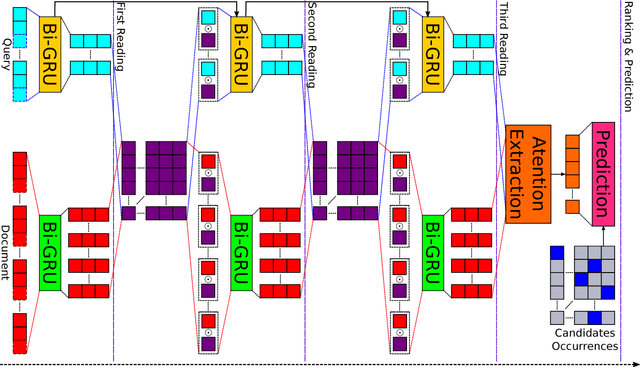
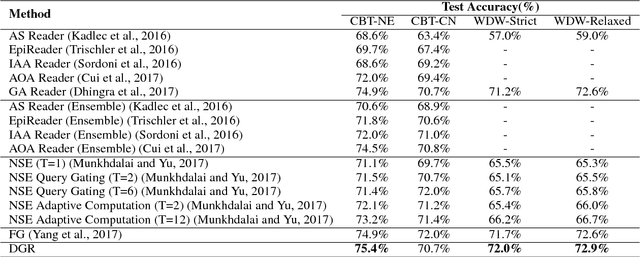

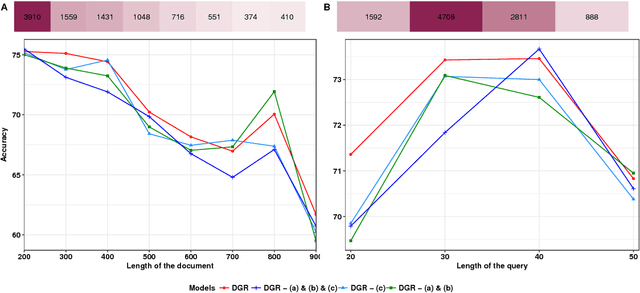
Abstract:We present a novel deep learning architecture to address the cloze-style question answering task. Existing approaches employ reading mechanisms that do not fully exploit the interdependency between the document and the query. In this paper, we propose a novel \emph{dependent gated reading} bidirectional GRU network (DGR) to efficiently model the relationship between the document and the query during encoding and decision making. Our evaluation shows that DGR obtains highly competitive performance on well-known machine comprehension benchmarks such as the Children's Book Test (CBT-NE and CBT-CN) and Who DiD What (WDW, Strict and Relaxed). Finally, we extensively analyze and validate our model by ablation and attention studies.
 Add to Chrome
Add to Chrome Add to Firefox
Add to Firefox Add to Edge
Add to Edge